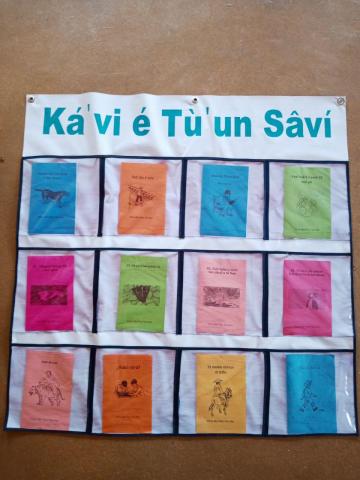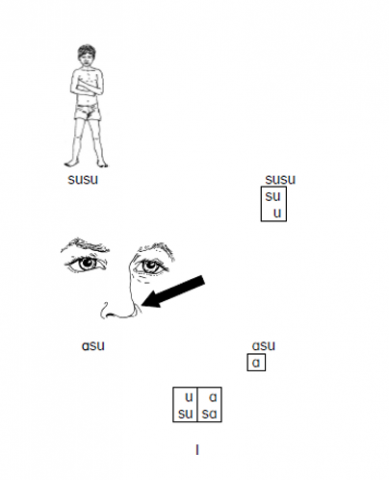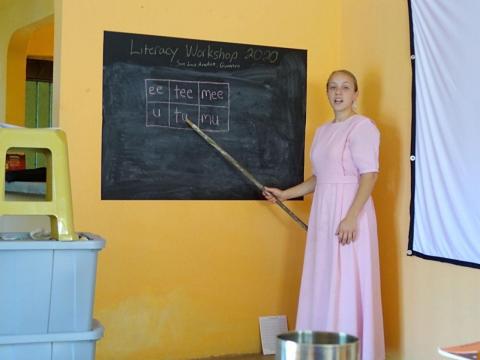In South American jungles live many people who have never learned to read and write their own language. Not only does this feed their sense of inferiority; it also makes them vulnerable to being taken advantage of. And how will they ever read the Bible?
Breaking Barriers to Literacy
All-Nations teams generally serve people groups with low literacy rates. You might think, “Okay, give them audio Bibles to listen to.” Yes, we will produce audio Bibles, but we will also address the underlying problem of illiteracy, opening the world of reading for indigenous communities.
An early start
Teams encourage literacy early, whetting the people’s appetite for reading and writing their own language. In southern Mexico, Ethan and Lynnae printed simple booklets with a picture and a Mixtec word or phrase on each page. This way people begin to experience the joy of mother-tongue written communication. Sometimes, more basic skills need to be taught, like running the eyes from left to right and back to the next line and distinguishing letter shapes.
A sustainable method
We want to start literacy programs that can be carried forward by local people who learn to teach others. This means using a simple approach they can learn well and passing on responsibility to them all along the way.
We hope to see more and more people and villages learning to read. We envision churches of people who immerse themselves in God’s Word and follow Him together.
Ethnos360, an evangelical organization with similar goals, has demonstrated an effective method based on learning syllables rather than starting with letters. While other approaches work well in various situations, All-Nations teams plan to use primarily the syllable method.
A simple curriculum
After several years of learning language and gathering data, teams will meet with a literacy coach to develop a set of primers. Then they will develop lessons that have students reading sentences by the second primer lesson. Like you and I did in first grade, these people also begin writing as they are learning to read.
We have much to learn in this area. We pray that our literacy efforts will support the goal of sustainable and reproducible churches that glorify God.



